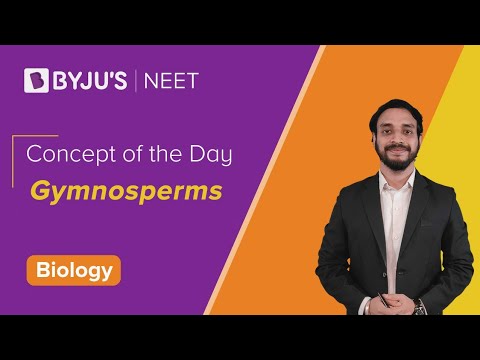The genus Pinus is a conifer belonging to the Pinaceae family. It is the most well distributed genera of plants found in the northern hemisphere. About 115 species of these evergreen conifers are known. They are lofty, perennial trees with spiral branches exhibiting a conical resemblance. The body of this plant is segregated into stem, roots and leaves (needle-like).
The pine seeds are consumed by birds, squirrels and other small animals. Pinus is a source of timber for wood and paper production. It is also important for sourcing turpentine, rosin, oil and wood tars. Below listed are some important questions on Pinus for NEET. Solutions are made available too.
1. “Chilgoza” a popular dry fruit is a production of
(a) Pinus gerardiana
(b) Pinus sylvestris
(c) Pinus roxburghii
(d) Pinus monophylla
Answer: (a)
2. Mesophyll tissue of Pinus needle is composed of
(a) Spongy parenchyma
(b) Armed parenchyma
(c) Chlorenchyma
(d) Transfusion tissue
Answer: (a)
3. Male gametophytes of Pinus is
(a) 2 celled
(b) 4 celled
(c) 6 celled
(d) 10 celled
Answer: (b)
4. This is how we can characterize the secondary wood of Pinus
(a) vessels are present
(b) resin ducts are absent
(c) resin ducts are present
(d) resin cells are present
Answer: (c)
5. This is a correct statement about Pinus
(a) forms deciduous trees in temperate areas
(b) exhibits xerophytic character and grows in deserts
(c) cosmopolitan in distribution
(d) is of economic value
Answer: (d)
6. Formation of non-motile male gametes is observed in
(a) Fern
(b) Pinus
(c) Funaria
(d) Selaginella
Answer: (b)
7. Winged seeds are present in
(a) Pinus
(b) Cycas
(c) Papaver species
(d) None of these
Answer: (a)
8. Meroblastic kind of embryo development occurs in
(a) Pinus
(b) Ferns
(c) Selaginella
(d) All of these
Answer: (a)
9. This is the best explanation for the pyramidal shape (excurrent) of Pinus (branches producing the appearance of a tall cone)
(a) influence of auxins on the development of stem tips
(b) water efficiently transported from ground to leaves
(c) adapting to wind pollination
(d) competition for sunlight amongst adjoining trees
Answer: (c)
10. These possess needle-like foliage leaves
(a) Pinus
(b) Fern
(c) Selaginella
(d) Mosses
Answer: (a)
Learn more MCQs important for NEET, at BYJU’S. Explore others at NEET MCQs section.
Recommended Video:

Other Important MCQs for NEET Biology:
Comments